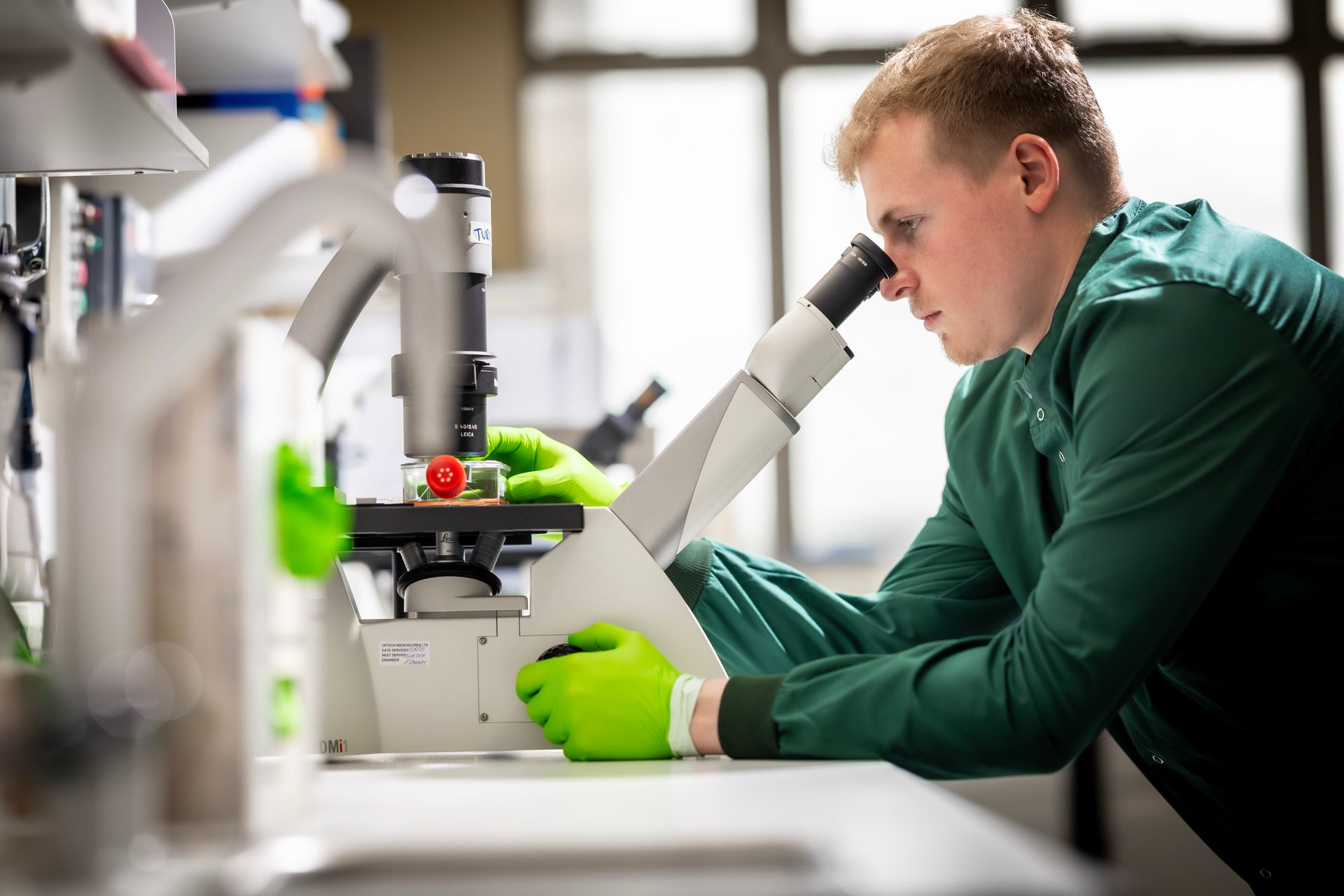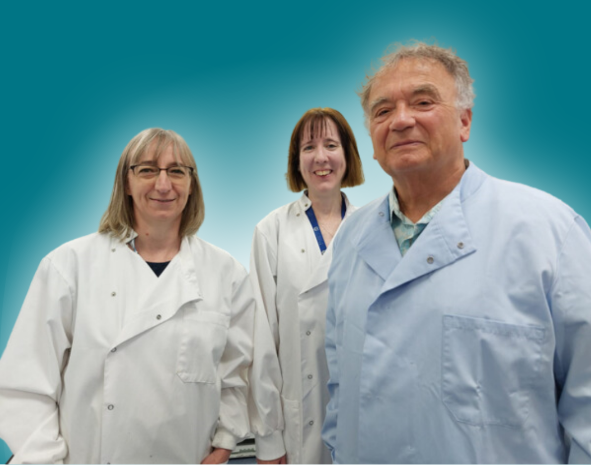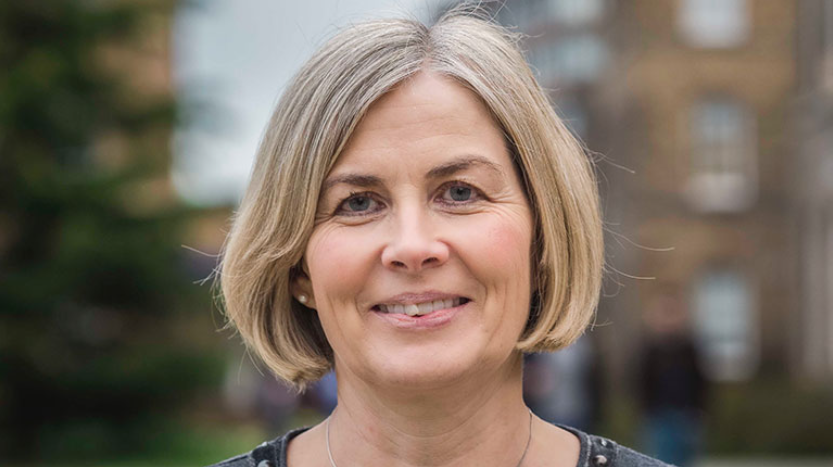Discovering...

Advancing Cancer Research
here in Leicestershire and Rutland
A study at the University of Leicester has developed a new technique to help predict the best treatment for individuals with breast cancer.
As the number of treatment options increases it is difficult to know who will benefit from which therapy.
Techniques, such as the one developed by this study, will help doctors to understand the differences between individuals and potentially allow for more informed treatment decisions.
Hope Against Cancer is extremely proud to have helped fund this research.
Discover more about this story here

Hope Against Cancer has funded over 100 research projects in the form of fellowships, PhD studentships and consumable grants.
The projects cover a range of cancers at different stages of research – all with the aim of improving the lives of those with cancer.
By helping fund cutting-edge research in the area, Hope Against Cancer has played a role in Leicester becoming internationally recognised for its cancer expertise.
This has only been made possible by the massive support and generous donations from members of the public, local businesses and organisations.
Research Funding for 2024/25
Project one: The immune evolution in the era of chemoimmunotherapy for early and metastatic Triple Negative Breast Cancer.
Principal Supervisors: Shradha Bhagani/Dr Harriet Walter & Professor Jacqui Shaw
This project looks at understanding personalised treatment for Triple Negative Breast Cancer.
The standard treatment for this cancer type is chemotherapy but this is changing as a range of new drug and immunotherapies enter the field, however, with new treatment options come increasingly complex treatment decisions.
This research will use the latest DNA sequencing technology to help researchers understand the differences between individuals and potentially allow doctors to make more informed treatment decisions.
Project two: Use of the patient-derived explant platform coupled with RNA sequencing for predicting responses to immune checkpoint inhibitors in malignant melanoma
Principal Supervisor: Prof Catrin Pritchard
This project looks at understanding differing responses to treatment of malignant melanoma. Researchers in this project are looking at new ways to extract RNA from stored long-term samples.
This RNA will be sequenced so that researchers can look for the reasons behind drug resistance and work towards personalised care.
Project three: Uterine cancer awareness: the impact of language and cultural adaptation of information materials
Principal Supervisor: Esther Moss
This project is an awareness project for uterine cancer which considers the impact of language and culture on the spread of information.
Through outreach, discussion and cooperation the project aims to provide information on uterine cancer which is culturally sensitive, adapted to the needs of under-served and minority-ethnic communities including multi-lingual availability.
Awareness and knowledge are keys to understanding early symptoms and culturally sensitive materials will have an impact on the decision to seek early medical support.
Our Researchers & Projects
Hope Against Cancer is proud to have helped the Universities and Hospitals of our area develop and promote a stream of experts and specialists in various areas of cancer research.
These people are leading the fight against cancer, and we thought you'd like to put a few names and faces to a selection of the important projects that Hope has funded.

Professor Chris Talbot
Professor Talbot has led an investigation into how acute ‘on treatment’ radiotherapy toxicities may result in late effects, which can have a significant impact on health-related quality of life.
Prof Talbot has subsequently secured a multi-million-pound Horizon grant with European collaborators that will look at new ways of predicting risk of radiotherapy side effects in breast cancer patients using artificial intelligence.

Dr. Esther Moss
Dr Moss’s funding into endometrial cancer is helping to improve understanding of how ethnicity may be important in understanding drivers of cancer and how best to treat endometrial cancer.

Professor Catrin Pritchard, Professor Dean Fennell
Funding received by Prof Pritchard and Prof Fennell is helping to improve our understanding of a type of lung cancer caused by exposure to asbestos called mesothelioma. The research is improving our understanding of the use of immunotherapy treatments, and will inform us of new areas of research for patients with this type of cancer.


Dr. Gareth Miles
Funding received by Dr Miles is allowing him to develop better ways to predict treatment responses to chemotherapy and other new drugs in breast cancer so that in the future we can make smarter treatment choices for our patients.

Dr. Sandrine Jayne, Dr. Harriet Walter, Professor Martin Dyer (left to right)
Funding received by Dr Jayne and Prof Dyer has helped develop a new pre-clinical model in lymphoma and resulted in subsequent funding from industry funders. The purchase of a new microplate reader has improved understanding of which drugs may help patients and, in some cases, inform personalised therapy of patients in the clinic.
Funding received by Prof Dyer and Dr Walter has led to new tools for early detection of relapse in Mantle cell lymphoma being studied in Leicester and led to Leicester’s involvement as only one of 4 UK sites in an important study in lymphoma using liquid biopsies.
Selected Individual Projects
Our Researchers & Projects
‘Pump Priming’ Projects are a vital part of scientific research. These projects enable researchers to collect pilot data that can be used to support future large-scale applications for external research funding.
Hope Against Cancer often support such pump priming projects
Dr Daniel Fernandez-Garcia and Professor Jacqui Shaw were awarded £10,053:
This contributed to work comparing circulating free DNA (cfDNA) and circulating tumour cells (CTCs) with the tumour in patients with breast cancer.
This pump priming contributed to a poster presented at the American Association of Cancer Research conference 2021 and two research papers.
To find out more about publications from this research please visit our Share page
Dr Esther Moss was awarded £9,418:
As part of the work researching “The use of circulating tumour DNA to monitor the activity of womb cancer and predict response to treatment and disease recurrence”.
Preliminary results have been gathered and are in the validation phase.
Prof M Dyer, Dr Jayne, & Dr Walter were awarded £8,450:
This enabled preliminary data to be generated to support the following successful grant applications: MRC/iCASE PhD studentship, LPHI studentship, funding from LHRF (£20,000) and successful Innovate UK KTP grant application (£580,000).
Prof. K Brown was awarded £10,000:
This funding went towards the support of a PhD student.
The project aims to identify old generic drugs that might be repurposed for the prevention of mesothelioma, a cancer predominantly caused by exposure to asbestos. Ultimately, it is hoped that this project will lead to the identification of drugs that might eventually be advanced to clinical trials in patients at high risk of developing mesothelioma.
Dr Gareth Miles and Professor Catrin Pritchard were awarded £10,000:
This funding contributed to the NGS (Next Generation sequencing) of 75 breast cancer samples. Physical samples were also collected and treated with drugs that are in the development stage.
The aim of this study is to find ‘biomarkers’ which can identify patients who would be most likely to benefit from certain forms of treatment.
The data is currently in the final analysis stage.
Dr Cristina Tufarelli was awarded £10,000:
This funding went to employ a part-time bioinformatician to support research looking into potential targets for early detection and early treatment of inflammation-associated cancers.
Bioinformaticians are specialised professionals who create and work with computer-based tools and algorithms to solve problem. They combine skills and technologies from computer science and biology to better understand and interpret biological data.
At the end of the employment on this Hope Development Grant, the postholder was recruited to a permanent post as a bioinformatician by AskBio in Edinburgh and x2 publications resulted.
To find out more about publications from this research please visit our
Share page
Dr Sam Khan was awarded £9,590:
This allowed preliminary data to be generated for funding of a Future 100 Centenary PhD studentship at the University of Leicester and enabled a joint application for funding to be successful from the Medical Research Council Equipment fund for £350,000.
Dr D Guttery was awarded £10,000:
This was used to design and develop a next-generation sequencing panel that will detect over 1000 common mutations in head and neck cancers.
These sequencing panels allow genes to be compared for mutations which researchers can use as early detection markers or for other highly useful outcomes.





